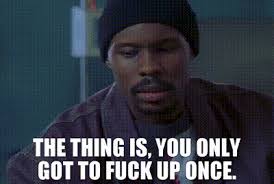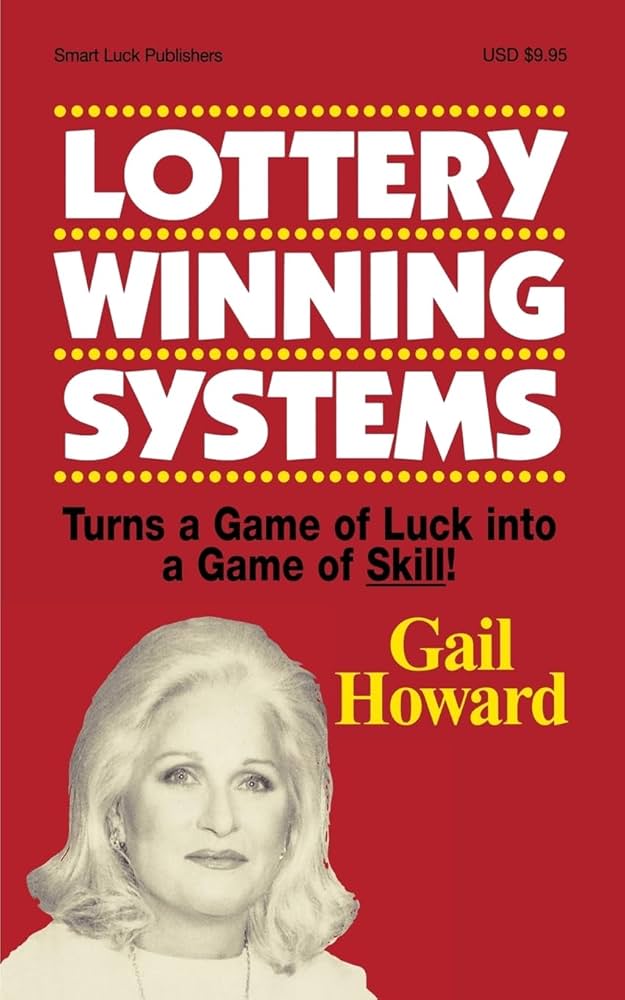You keep getting scammed for three reasons—and none of them have anything to do with how smart you are, how much experience you have, or even whether you’ve got street smarts.
Now, don’t get me wrong—lack of street smarts definitely makes you an easier target. But hustling follows a different law. It’s the same rule that determines who survives anything summed up nicely in the quote, “It is not the strongest of the species that survives, nor the most intelligent that survives, but the one that is most adaptable to change.”
And when I say “scammed,” I’m not just talking about getting tricked into handing someone your money under false pretenses. A scam is anytime you give something valuable to—your time, your trust, your energy, your reputation—because you were led to believe you’d get something back… and what you actually got was so far below what was promised that it might as well have been nothing.
People think scams are rare and that they’re obvious. But you’ve probably been scammed more times than you realize—you just used different words for it. If you gave up something because someone told you—explicitly with their words or implicitly with the expectations set by the arangement—that you’d get something valuable in return, and what you got instead was cheap, hollow, or straight-up nothing… you got scammed.
For example:
- If you’ve ever been in a relationship where the person ended up being a completely different and much worse version of who they were when you started dating them, that’s a scam. That’s the ol’ switch-a-roo. They sold you one thing and delivered another.
- If you’ve ever vouched for someone—put your name, your face, your credibility on the line—and they turned around and embarrassed you, made an ass of themselves in a way you never saw coming, that’s a scam. You believed in what they showed you, and what they gave you in return was damage.
And here’s the part that stings the most: even if you didn’t see the signs, it’s still your fault.
No matter how slick someone is, no matter how well they hide their motives or mask their deception, there’s always going to be some heartless bastard who tells you it was your fault for not seeing it coming—and they’re right.
In 99% of cases, whether they took your money, your time, or your peace of mind, it’s on you. It’s harsh, but it’s the truth. And if, somehow, you’re one of the rare people who really did get taken down by a long con—one set up with patience, precision, and zero regard for the damage it would do—that doesn’t make this any less true nor does it change this simple truth: if you don’t take responsibility for what happened to you, it’s guaranteed to happen again.
Getting scammed once sucks, but getting scammed over and over because you didn’t learn anything? That’s what really ruins you. So what are you supposed to do?
In this essay, I’m gonna break down the fundamental reasons why you keep getting scammed. And by understanding those reasons, you’ll start to see how to make yourself scam-proof—or at the very least, how to recover faster and come back smarter when someone does get over on you.
And even if you’ve never been burned before—at least not in a serious way—this essay the closest thing you’ll get to a vaccine against the virus of scamming that plagues our society at every level. Because there will always be someone out there looking to get you, and you’re bound to get caught slipping once or twice over your life.
Like Avon Barksdale says about the drug game in The Wire:
“The thing is, you only got to fuck up once. Be a little slow, be a little late—just once. And how you never gonna be slow or late?”
Now Avon was talking about the dope game, but the idea still applies, if for no other reason than sometimes, the consequences of being a little slow or late when catching on to a scam can be just as disastrous as messing up a drop or selling to an undercover.
But if you understand the game, then even when you are late or slow, it won’t wipe you out. You won’t have to rebuild your sanity, your trust in people, or your bank account from scratch.
But before we go any further, I want to thank the sponsor of today’s essay, Shortform.
Shortform is a book summary platform, but it’s way deeper than just summaries. Their guides break down key ideas, add smart context, and connect the dots between concepts—so you actually understand the material and can apply it.
For this essay, I revisited Never Split the Difference by Chris Voss, the former FBI hostage negotiator. That book is a masterclass on negotiation psychology—and reading the Shortform version helped me pull out the most important ideas about how people build trust, exploit emotions, and use subtle cues to steer you without you realizing it.
If you want to sharpen your ability to read people—and not get played—this is a great place to start.
You can try Shortform for free and get 20% off the annual plan using the link https://shortform.com/edlati2
There’s an old saying:
“When a man with money meets a man with experience, the man with the money leaves with experience—and the man with experience leaves with the money.”
That’s a hard way to learn a lesson. And while there is a time and a place for learning things the hard way, if the lesson is so hard, you won’t survive long enough to benefit from it. Hopefully, what I’m about to break down saves you from learning the hard way—with your cash, your dignity, or your soul.
In my last essay, I talked about the hidden cost of being street smart—and how it’s basically a Faustian bargain.
You gain the ability to see through a lot of bullshit, but it costs you your peace of mind and your ability to genuinely connect with people. And that’s where the danger starts. Because while street smarts might make you harder to take advantage of, they also give you a false sense of security.
You’re like New Orleans and your street smarts are like the levies and damns that protect the city that’s already below sea level from the storm surge. And it seems to always work. You catch every person who tries to hustle, cheat, or deceive you—until you get hit by the Hurricane Katrina of scammers and you find out that your defenses aren’t adequate enough and your fragile sense of trust—and probably a couple of dollars—gets washed away.
The con that finally gets them is devastating—more so than it would be for the average victim—because you, this person—more than anyone else—didn’t think it could happen to them. And because street smarts come with emotional distance and mistrust, there’s no one around to help you process it when it happens. You took pride in being untouchable, so now you’re alone and ashamed.
The embarrassment is a huge part of it. No one wants to admit they got played—especially people who build their identity around not getting played.
But that’s exactly what a con man counts on.
You ever wonder where the word “con” comes from? It’s short for “confidence.” In the 1840s, there was this dude named William Thompson. He’d dress well, act like he knew you, strike up conversations like you were old friends. Once he had your trust, he’d ask to borrow your watch or your jewelry—just for a moment. And people gave it to him. Just like that. Because he’d earned their confidence.
Then he’d bounce. Gone. Never seen again.
The newspapers started calling him a “confidence man,” and the name stuck. Con man.
That’s the game. Build trust. Play the long game. Make you feel like you’re in control. Then flip it on you.
And the best con artists? They love a street smart mark. Because they know that ego is a wide-open back door. If they can make you feel like you’re too sharp to get got, then all they have to do is say the right things, push the right buttons, and boom—you’re in.
Because you don’t think you can be scammed, you’re the easiest person to scam. Your ego becomes your enemy
People with huge egos are some of the easiest marks out there. They think they’re too smart, too hard, too unapproachable to be scammed. But all that ego does is block you from seeing the obvious cons. And because you’ve built walls around yourself—again, a side effect of being too street smart—you’ve cut yourself off from the very people who could warn you.
You’ve made yourself the perfect victim.
I had a girl pitch me her video editing services once. Said she worked with guys like Alex Hormozi, Ali Abdaal, and Dan Koe. Sent me a slick-looking portfolio and everything. But something felt off. So I hit up Dan Koe directly—asked him if he’d ever worked with her. Turns out she’d never done any official work for any of them. She just took their content, cut it up, and claimed it like she was on their team.
If I hadn’t had the presence of mind—or the network—to ask, I’d have fallen for it. Like Young Jeezy says in “This One’s For You,” “Half of these niggas tellin’ lies and they sound try, but if you had it like that I woulda found you.” You have to be willing to check the receipts to see if someone is full of shit, and one of the best ways to do that—in person or on the internet—is to build a network. But again, this is the downside of thinking you’re too street smart to be conned.
If you never build relationships, you never build a network of people to fact-check for you. You’ve got no one to call and say, “Hey, you ever heard of this person?” And that makes you vulnerable.
Oh, and don’t fall for that line about “client confidentiality.” That’s a red flag you’re dealing with a scam—or something illegal, which is just as bad. Even people doing dirt in the street have a referral network, just so they know you aren’t a cop when you show up out of nowhere.
Anyone who’s ever tried to just break into illegal activity knows that it doesn’t quite work that way. A buddy of mine was running an unregistered bookie service and, after he had some success, the guys who controlled the street level gambling told him that he could either pack up shop, pay them a cut, or the next time they talked, it was gonna be more than just talking.
Your ego is probably the biggest reason you keep getting scammed—and the worst part is, you don’t even realize it.
You think your hard exterior protects you. You think being skeptical, guarded, and difficult to reach makes you immune. And in some ways, it does protect you—from the easy cons, the low-level scams that rely on emotional manipulation or obvious bait. But that same ego? It blinds you to the subtle stuff.
Because the more you wall yourself off, the less experience you have with the full range of human behavior. You only know how to spot the loud scams. You don’t know how to read the soft con, the long game, the setup that plays out slow and quiet. You miss it because you think you’re too smart to fall for anything.
That’s exactly who they’re looking for.
Here’s the second reason you keep getting scammed—and this one’s gonna hurt.
You’re either lazy, greedy, or desperate—or all three.
You’re always looking for a shortcut. You want the easy way out. That’s what makes you vulnerable to the shiny promises—MLMs, secret systems, “passive income” streams that’ll supposedly make you rich overnight if you just fork over a few hundred bucks to unlock the secret.
It always sounds too good to be true and it usually is. But when you’re desperate or lazy, you convince yourself it might be different this time.
And look—greed doesn’t always look like wanting stacks of money. Sometimes, greed is just wanting more than you’ve earned, faster than you’ve earned it. You want the results without the sacrifice. And there’s always someone more than willing to sell you that illusion—for a price. That’s their real hustle.
Getting rich, selling people the idea that they’ll get rich without any effort, time, or sacrifice. You think they got
In my early 20s, I found this woman named Gail Howard selling these programs and systems that would help you win the lottery. She even had all these testimonials from people who won using here systems. You can still find Gail Howard on Google.
I never stopped to ask myself, “Why is she selling this program for $199.99 when she could just be winning lottery jackpots?” Or, on the few chances that I did, I drowned it out so I could I believe in my delusion, and I suspect most people lied to themselves too.

This is the same scam that astrologers, tarot card readers, and psychics pull on people. It’s much easier to believe that paying for this mystic, secret guidance will get your life on track and give you answers to your program than it is to learn a skill to make money, get in shape to improve your chances of getting a date, and to stop being a shitty person so you can get some friends.
The truth is that there are only two ways to get anything worthwhile: the hard way and the really hard way. There are no shortcuts other than to bust your ass and make the hard changes to have an easier life. Thinking otherwise makes you look for ways to shortcut the system and you will find them, because there is no shortage of people looking to pray on your greed, laziness, and insecurity.
This is what The Streets, a 90s rap group from the UK, meant when they said, “You can never con an honest John, an honest John is hard to con.” Payday loans with extraordinary double digit interest rates and anybody approved credit places prey on people don’t realize this truth of life.
People like to say “Don’t take my kindness for weakness,” but let’s be honest—sometimes it is weakness. Sometimes you’re just too afraid to speak up, to ask questions, to say “No, this doesn’t make sense.” Or worse and far more common, you’re too weak to simply walk away from something that looks like a bad deal. It doesn’t matter if that weakness is due to lack of character, intelligence, or options, People walk take advantage of you.
Great con artists don’t just sell lies—they sell to your identity. They make you feel smart, respected, even superior. And once you believe that? You’re hooked. You’ll rationalize anything just to maintain the image you have of yourself.
And here’s the wild part: sometimes you’re not even getting scammed for money. You’re getting scammed for your belief. Confirmation bias makes you easy to scam. You want to believe there’s a fast way out of troubles that took you a long time to get into—whether it be financial, romantic, health related, or otherwise—that you’ll bite on anyone throwing out any semblance of hope, even it’s an objectively bad idea. It’s almost like you want to be scammed Of course, that’s not true.
You just want to escape the pain in your life and you’ve become so desperate that you’ll listen too anyone offering anything. And if they look like they have the trappings of success—pictures of a rented lambo, lounging by the pool on the beach, their female friends or random girls all posed around them to look like they’re a player, and a physique that’s the product of steroids—then it’s a layup. By manipulating the halo effect—where we believe successful good looking people are automatically experts—they trap you and eat you alive.
So what’s the real defense against getting scammed?
It’s not being the smartest person in the room. It’s not having street smarts. And it’s definitely not pretending like you’re too hard or too experienced to get caught slippin’.
It’s adaptability. Like I said at the beginning—it’s not the strongest or the smartest who survive. It’s the ones who adapt. It’s also about those who get close enough to people to not only have a network to trust and verify incoming information through, but also so you keep your ability to read people in sharp.
And don’t take shortcuts, because there’s always a trade-off. It might seem like you found a secret but if it were so profitable and effective, then it would still be a secret. The only REAL secret to getting what you want is to do things people don’t want to do, longer and better than any one else who is doing them. If someone tries to sell you that, you can trust them but, at that point, you don’t need to buy something anyway.
Because at some point, someone’s gonna try to get over on you. That’s guaranteed. The question is: do you have the self-awareness to spot it in time, or at least have the people in place who will help you recover fast enough not to lose everything?
There are no shortcuts. No secret formulas. No lottery systems or manifestation rituals or copy-paste success hacks that save you from the grind. And every time you chase one, you’re handing your time, money, or reputation over to someone who knows damn well that you are the product.
I’ve been there. I’ve bought the lottery book. I spent the money on psychic readings and astrology books. I’ve fallen for the hype. I’ve ignored my instincts because I wanted something to be true so badly.
But here’s what I know now: if it costs you your peace, your time, or your pride—and it doesn’t deliver on what was promised—you didn’t just make a bad decision.
You got scammed, but it doesn’t have to be that way.





